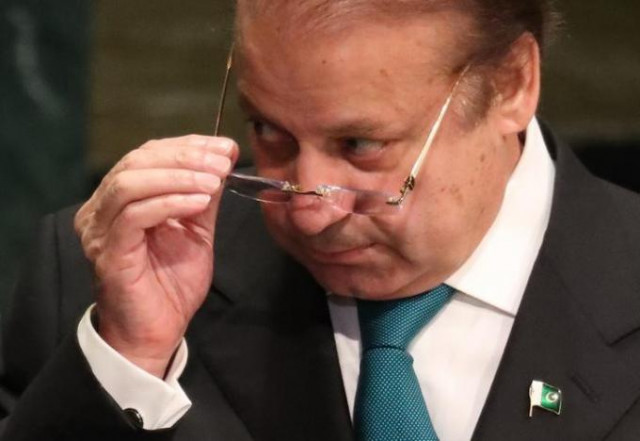Five regulatory bodies stripped of autonomy
Ministries get control of Nepra, Ogra, PTA, PPRA and FAB

Prime Minister Nawaz Sharif. PHOTO: REUTERS
Interestingly, the Council of Common Interests (CCI) was to take up the matter in its Dec 16 meeting, but it was dropped from the agenda at the eleventh hour by the Prime Minister Secretariat.
Sources in the ministry of inter-provincial coordination (IPC) say it was removed from the agenda for fear of strong backlash from the provinces. However, a senior official cites ‘lack of homework’ by the government as a reason.
In an official notification issued on Monday, the cabinet division stated that the prime minister was pleased to approve the transfer of National Electric Power Regulatory Authority (Nepra) to the ministry of water and power; the Pakistan Telecommunication Authority (PTA) and the Frequency Allocation Board to the ministry of information technology and telecom; the Oil and Gas Regulatory Authority (Ogra) to the petroleum ministry; and the Public Procurement Regulatory Authority (PPRA) to the finance ministry.
Until now, these regulatory bodies were under the administrative control of the cabinet division, or simply the prime minister.
Monday’s move is likely to cause consternation, particularly in the provinces that have been opposed to the idea as they believe the transfer of these bodies will circumvent the rights promised to the provinces under the 18th constitutional amendment.
Three days before the CCI meeting, K-P Chief Minister Pervaiz Khattak had urged IPC Minister Riaz Hussain in a letter to remove it from the agenda because the provinces had not been taken into confidence.
“There is a need for detailed and careful deliberation at our end before firming up our viewpoint for consideration of the CCI, which, for sure, cannot be done in a short span of one day,” Khattak wrote.
In July 2016, the IPC ministry had forwarded a summary to the prime minister seeking control of all the subjects of the federal regulatory authorities. The summary stated that since these authorities were under the cabinet and the ministry of information technology and telecom and others, the IPC ministry was unable to efficiently coordinate with the provinces.
In previous CCI meetings, the K-P and Sindh had also favoured the transfer of these bodies to the IPC ministry instead of ‘line ministries’. “We have Sindh and Balochistan on our side, and they have assured us that they will resist any move to curtail the autonomy of the regulatory bodies,” Khattak said in his letter.
For K-P, the issue is more critical as power generation from Tarbela dam has been a vital source of revenue for the province apart from several hydroelectric power projects the provincial government has planned in the far-flung areas of the province.
Published in The Express Tribune, December 20th, 2016.



















COMMENTS
Comments are moderated and generally will be posted if they are on-topic and not abusive.
For more information, please see our Comments FAQ